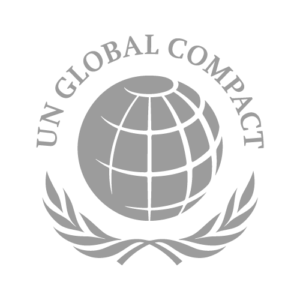COP28: Et vendepunkt for global klimahandling
Av Camilla Høvik
English version below
Når det internasjonale samfunnet samles i Dubai for den 28. utgaven av FNs klimakonferanse (COP28), er forventningene høye og innsatsen enorm. Konferansen, som varer fra 30. november til 12. desember 2023, representerer et avgjørende øyeblikk i den globale kampen mot klimaendringer, og setter scenen for viktige diskusjoner og mulige gjennombrudd.
Økt press for handling
Med rekordhøye globale temperaturer og en økning i ekstremværhendelser over hele verden, er COP28 ansett som en avgjørende mulighet for å korrigere kursen og intensivere innsatsen for å håndtere klimakrisen. Årets konferanse er spesielt viktig da det markerer et tidspunkt for å ta lager av fremgangen som er gjort siden Parisavtalen ble inngått.
De største økonomiene og CO2-utslipperne, som Kina og USA, samt EU, vil være i forgrunnen av forhandlingene. Kina, som leder i både fornybar og fossile energikilder, står overfor sine egne klimakriser, inkludert hetebølger og flom, samtidig som de argumenterer for at rike, utviklede land bør lede an i klimainnsatsen. På den annen side fortsetter USA, under Inflation Reduction Act, å fremme fornybar energi og har som mål å fase ut CO2-utslipp fra fossile brensler.
EU fortsetter å presse på for en økning i fornybar energikapasitet, utfasing av fossile brensler, og ønsker at teknologier for å fange utslipp kun skal brukes sparsomt. Disse standpunktene setter opp mulige konflikter med land som er avhengige av fossile brensler.
Viktige temaer og diskusjoner
En av de mest presserende sakene på agendaen er etableringen av et «tap og skade»-fond, som har som mål å samle inn minst 100 milliarder dollar innen 2030 for å bistå utviklingsland som er sterkt påvirket av klimaendringer. I tillegg vil konferansen se på konkrete planer for å begrense utslipp av metan, den nest mest fremtredende drivhusgassen.
En annen betydelig hendelse under COP28 vil være World Climate Action Summit, ledet av Sheikh Mohamed bin Zayed Al Nahyan, som vil bringe sammen statsledere og regjeringsoverhoder for å diskutere klimaaksjon på høyeste nivå.
For næringslivet representerer COP28 både en utfordring og en mulighet. Med den økende vektleggingen på fornybar energi og utfasing av fossile brensler, er det et klart signal om at næringslivet må tilpasse seg til en lavkarbonfremtid. Samtidig åpner dette for nye markeder og innovasjoner innen fornybar teknologi og bærekraftige løsninger.
Resultatene fra COP28 vil ha langvarige implikasjoner for både den globale klimapolitikken og næringslivets rolle i klimahandlingen. Med øynene rettet mot Dubai, forventer verden nå besluttsomme skritt og innovative løsninger for å møte denne presserende globale utfordringen.
COP28: A Turning Point for Global Climate Action
By Camilla Høvik
As the international community gathers in Dubai for the 28th edition of the UN Climate Conference (COP28), expectations are high and the stakes are enormous. The conference, lasting from November 30 to December 12, 2023, represents a crucial moment in the global fight against climate change, setting the stage for important discussions and potential breakthroughs.
Increased Pressure for Action
With record-high global temperatures and an increase in extreme weather events worldwide, COP28 is seen as a critical opportunity to correct course and intensify efforts to address the climate crisis. This year’s conference is particularly important as it marks a time to assess the progress made since the Paris Agreement.
The world’s largest economies and CO2 emitters, such as China, the USA, and the EU, will be at the forefront of negotiations. China, a leader in both renewable and fossil energy sources, faces its own climate crises, including heatwaves and flooding, while arguing that wealthy, developed countries should lead the climate effort. On the other hand, the USA, under the Inflation Reduction Act, continues to promote renewable energy and aims to phase out CO2 emissions from fossil fuels.
The EU continues to push for an increase in renewable energy capacity, phasing out fossil fuels, and advocates that technologies for capturing emissions should be used sparingly. These stances set up potential conflicts with countries dependent on fossil fuels.
Key Topics and Discussions
One of the most pressing issues on the agenda is the establishment of a «loss and damage» fund, aimed at raising at least $100 billion by 2030 to assist developing countries severely affected by climate change. Additionally, the conference will look at concrete plans to limit methane emissions, the second most prominent greenhouse gas.
Another significant event during COP28 will be the World Climate Action Summit, led by Sheikh Mohamed bin Zayed Al Nahyan, which will bring together state leaders and heads of government to discuss climate action at the highest level.
For the business sector, COP28 represents both a challenge and an opportunity. With the increasing emphasis on renewable energy and the phasing out of fossil fuels, there is a clear signal that businesses must adapt to a low-carbon future. At the same time, this opens up new markets and innovations in renewable technology and sustainable solutions.
The outcomes of COP28 will have lasting implications for both global climate policy and the business sector’s role in climate action. With eyes turned towards Dubai, the world now expects decisive steps and innovative solutions to meet this pressing global challenge.




